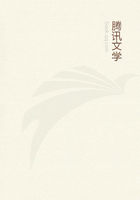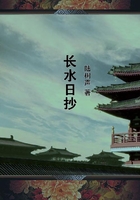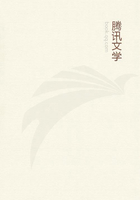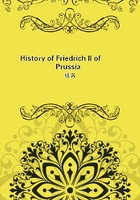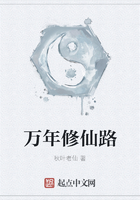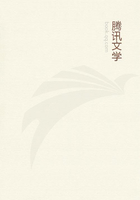A good deal of this is the result of theory playing its usual vile trick upon the artist. It is because he is a Democrat that Whitman must have in the hatter. If you may say Admiral, he reasons, why may you not say Hatter? One man is as good as another, and it is the business of the "great poet" to show poetry in the life of the one as well as the other. A most incontrovertible sentiment surely, and one which nobody would think of controverting, where - and here is the point - where any beauty has been shown. But how, where that is not the case? where the hatter is simply introduced, as God made him and as his fellow-men have miscalled him, at the crisis of a high-flown rhapsody? And what are we to say, where a man of Whitman's notable capacity for putting things in a bright, picturesque, and novel way, simply gives up the attempt, and indulges, with apparent exultation, in an inventory of trades or implements, with no more colour or coherence than so many index-words out of a dictionary? I do not know that we can say anything, but that it is a prodigiously amusing exhibition for a line or so.
The worst of it is, that Whitman must have known better. The man is a great critic, and, so far as I can make out, a good one; and how much criticism does it require to know that capitulation is not description, or that fingering on a dumb keyboard, with whatever show of sentiment and execution, is not at all the same thing as discoursing music? I wish I could believe he was quite honest with us; but, indeed, who was ever quite honest who wrote a book for a purpose? It is a flight beyond the reach of human magnanimity.
One other point, where his means failed him, must be touched upon, however shortly. In his desire to accept all facts loyally and simply, it fell within his programme to speak at some length and with some plainness on what is, for I really do not know what reason, the most delicate of subjects.
Seeing in that one of the most serious and interesting parts of life, he was aggrieved that it should be looked upon as ridiculous or shameful. No one speaks of maternity with his tongue in his cheek; and Whitman made a bold push to set the sanctity of fatherhood beside the sanctity of motherhood, and introduce this also among the things that can be spoken of without either a blush or a wink. But the Philistines have been too strong; and, to say truth, Whitman has rather played the fool. We may be thoroughly conscious that his end is improving; that it would be a good thing if a window were opened on these close privacies of life; that on this subject, as on all others, he now and then lets fall a pregnant saying. But we are not satisfied. We feel that he was not the man for so difficult an enterprise. He loses our sympathy in the character of a poet by attracting too much of our attention in that of a Bull in a China Shop. And where, by a little more art, we might have been solemnised ourselves, it is too often Whitman alone who is solemn in the face of an audience somewhat indecorously amused.
VI.
Lastly, as most important, after all, to human beings in our disputable state, what is that higher prudence which was to be the aim and issue of these deliberate productions?
Whitman is too clever to slip into a succinct formula. If he could have adequately said his say in a single proverb, it is to be presumed he would not have put himself to the trouble of writing several volumes. It was his programme to state as much as he could of the world with all its contradictions, and leave the upshot with God who planned it. What he has made of the world and the world's meanings is to be found at large in his poems. These altogether give his answers to the problems of belief and conduct; in many ways righteous and high-spirited, in some ways loose and contradictory. And yet there are two passages from the preface to the LEAVES OF GRASS which do pretty well condense his teaching on all essential points, and yet preserve a measure of his spirit.
"This is what you shall do," he says in the one, "love the earth, and sun, and animals, despise riches, give alms to every one that asks, stand up for the stupid and crazy, devote your income and labour to others, hate tyrants, argue not concerning God, have patience and indulgence towards the people, take off your hat to nothing known or unknown, or to any man or number of men; go freely with powerful uneducated persons, and with the young, and mothers of families, read these leaves (his own works) in the open air every season of every year of your life; re-examine all you have been told at school or church, or in any book, and dismiss whatever insults your own soul."
"The prudence of the greatest poet," he adds in the other - and the greatest poet is, of course, himself - "knows that the young man who composedly perilled his life and lost it, has done exceeding well for himself; while the man who has not perilled his life, and retains it to old age in riches and ease, has perhaps achieved nothing for himself worth mentioning; and that only that person has no great prudence to learn, who has learnt to prefer real long-lived things, and favours body and soul the same, and perceives the indirect surely following the direct, and what evil or good he does leaping onward and waiting to meet him again, and who in his spirit, in any emergency whatever, neither hurries nor avoids death."
There is much that is Christian in these extracts, startlingly Christian. Any reader who bears in mind Whitman's own advice and "dismisses whatever insults his own soul" will find plenty that is bracing, brightening, and chastening to reward him for a little patience at first. It seems hardly possible that any being should get evil from so healthy a book as the LEAVES OF GRASS, which is simply comical wherever it falls short of nobility; but if there be any such, who cannot both take and leave, who cannot let a single opportunity pass by without some unworthy and unmanly thought, I should have as great difficulty, and neither more nor less, in recommending the works of Whitman as in lending them Shakespeare, or letting them go abroad outside of the grounds of a private asylum.

